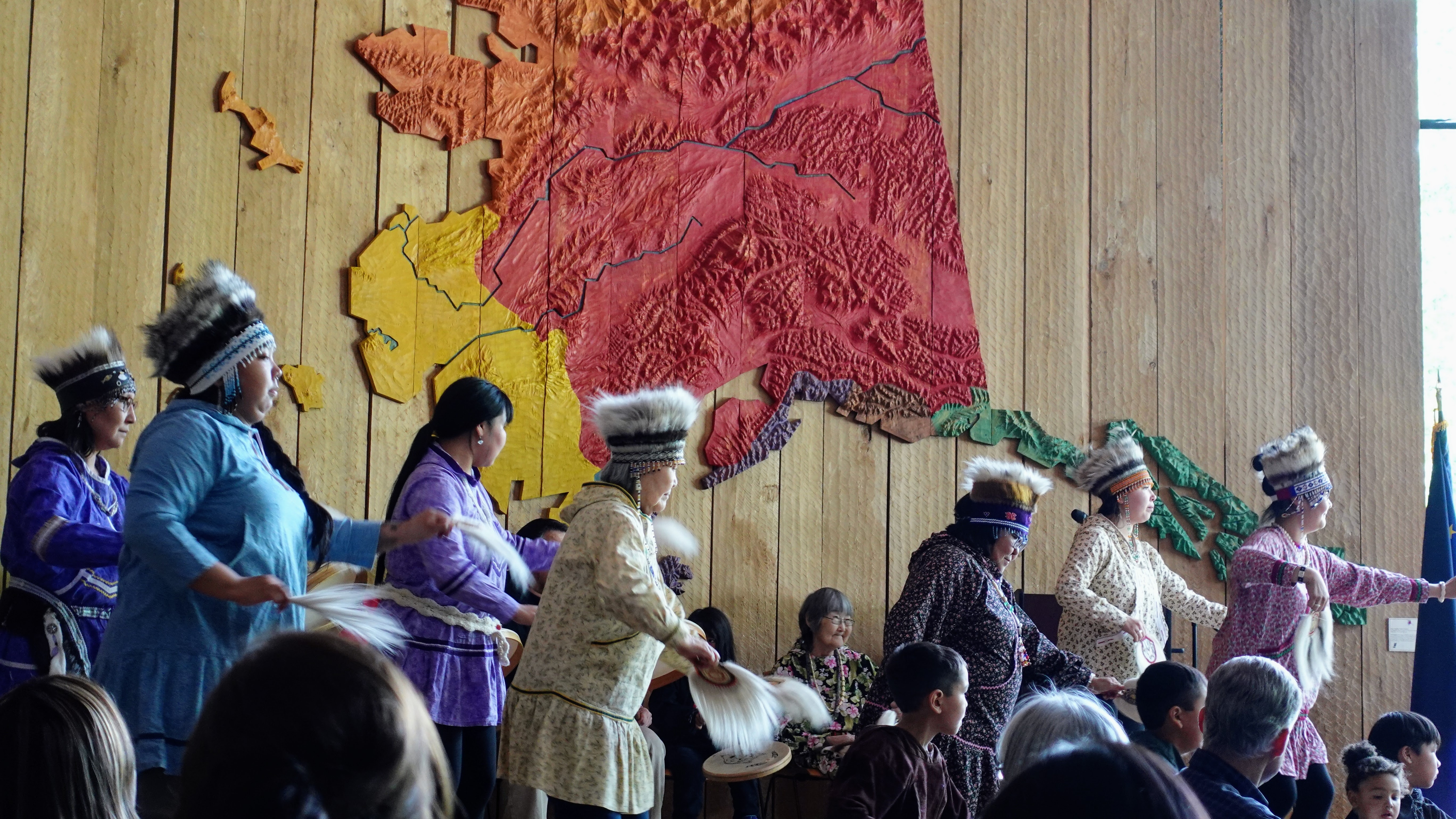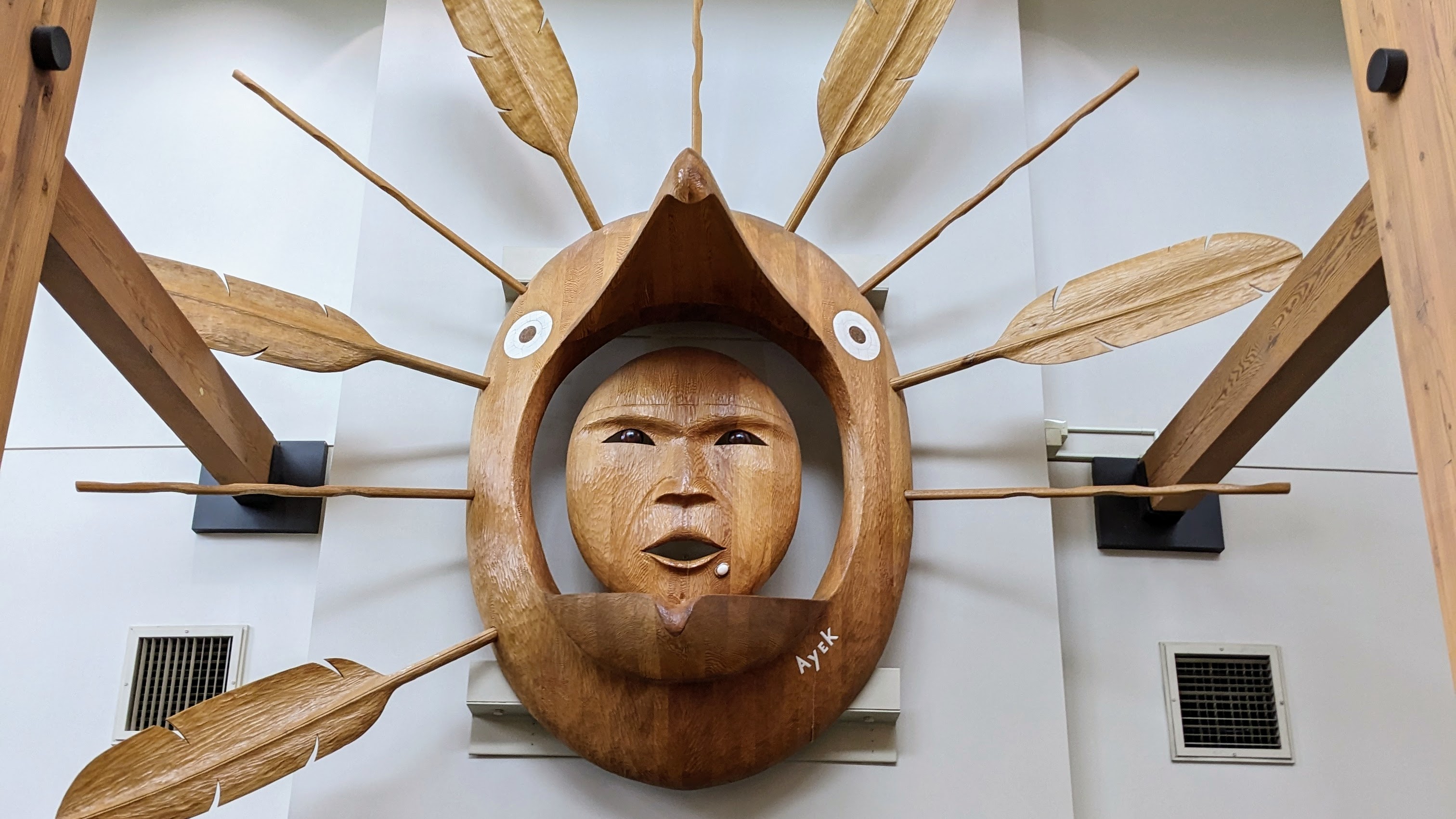Restorative practice; multi-dimensional and culturally competent
An evaluation of my formal learning from The Southcentral Foundation’s concepts and principles underscored some invaluable and pertinent ideas for application in diverse contexts.
This article focuses on potential for generational healing through story sharing, restorative practices and inclusive representation in every last detail.
Southcentral Foundation has a proud culture of listening, learning, and evolving to meet needs of the community; it runs throughout the way they manage change, commit to improvement, and hold the customer-owner central to all development.

‘The Hub of the system is family’ is one of the many Operational Principles by which SCF is guided, it is the one that perhaps most embodies their dedication to addressing relational health, to disrupting cycles of harm and the impact of generational trauma.
In pursuit of ‘Family Wellness’, SCF has designed a primary care facility that serves whole families from a single point, which, despite the potential complexity of needs that are being met, continues the native culture of familial support and considers the impact of parenting, generational trauma and family relational patterns.
“Family Wellness Warriors derives its gifted Dena’ina name, Nu’iju, from a word that means “returning to our (true) selves.” - Southcentral Foundation
Family Wellness has also driven the development of SCF’s many community based programmes of therapeutic support for behavioural health; from elders services and motherhood groups to traditional healing circles and, the long-standing, high impact ‘Family Wellness Warriors’ (FWW). FWW harnesses the power of story sharing to cultivate healthy relationships and consequently disrupt cycles of generational trauma among the Alaska Native population. It is led by Alaska Native people and is informed by traditional Alaska Native values; connection to the land, community and cooperation, cultural continuity, stewardship and storytelling.
It is in recognising the strength of sharing one’s story that SCF created ‘Learning Circles’ - a therapeutic model, an innovative tool for healing in community.
‘Learning Circles’ are derivative of the group-based restorative practices used in indigenous tribal traditions in many parts of the world. They carve out safe space and time for the community to come together and share their experiences, express their perspectives and engage in catharsis and care among their peers.
Here at SCF, groups of six are led by two trained facilitators that guide the the Learning Circle through a judgement-free process of self-expression and active listening. This unique intervention builds relationships, allows participants to learn from one another and reduces the isolating experience of holding stories in the body.
Additionally, ‘Learning Circles’ are a safe environment in which health or behavioural health fears can present, be discussed and - because all services are connected - appropriate onward referrals can be made. Practicing respectful togetherness in this way has the broader benefit of fostering democratic decision making, conflict resolution and cultural preservation - just as these circle based restorative practices have done for many generations passed.
“We heal in circle. We heal in story. We heal for those to come.”
- Family Wellness Warriors, Southcentral Foundation
The ‘Learning Circle’ journey begins with participants sharing story in a space made safe by the peer leaders who have built a foundation of trust by sharing their story first. This is the first opportunity for participants to connect with others and give voice to their own personal experiences. When their experiences are reflected back at them through active listening and the thoughtful responses of the group members, negative self perception and isolation in one’s trauma begins to drop away and participants begin to find agency to reclaim themselves. In doing the same for others in the group, participants begin to develop relational skills and confidence being with others, healthy relationships begin to form, co-regulation and healthy conflict resolution becomes possible. When the peer leaders can show the group how opening up can help themselves and others to feel well, participants begin to demonstrate regulation and support more widely so that the positive role they play in this small group can be replicated in their homes, with their families and, more broadly, with the wider community of which they are a part.
This restorative process is practiced by many other of SCF’s other community based therapeutic groups too. For example, service veterans that are at risk of PTS and suicidal ideation and those with lived Adverse Childhood Experiences. Disrupting the cycle of generational trauma that these groups are at risk of is key to transforming the social determinants of behavioural health for the Alaska Native population.
“Attachment research shows that adults who remember and tell their story in a full and honest way are unlikely to repeat generational abuse.”
- Main & Goldwyn, 1984 (NUKA Conference)
“I am learning to be a better father and to break the cycle of abuse.”
- Participant of the Family Wellness Warriors programme
“With any kind of event in my life, the way I used to react was just to use or drink...But this program showed me and gave me the tools to process in a healthy way.”
- Participant of the Family Wellness Warriors programme
It is in knowing one another in a deeper, more meaningful way that community members truly value one another and, as such, true cohesion becomes possible. The stories that are shared in these spaces make up a rich oral history of Alaska Native lives. In preserving the identity of the community like this SCF facilitates the next generation to engage with and learn from their cultural roots, no matter what social determinants impact them.
Fostering cultural connection in this way is fundamental to SCF’s conceptual model, their commitment to deliver ‘population-based systems and services’ and to build ‘services and systems on the strengths of Alaska Native cultures’ is declared in the ‘Operational Principles’ that guide their work. Evidence of these principles in action can be found in their recruitment practice, physical design, tribal medicine and their investment in rural care.

SCF prioritises hiring Alaska Native teams that both represent the community that they are serving and understand the historical traumas, stories and familial traditions that are unique to the population. In fact, 55% of the workforce at SCF are Alaska Native, 60-70% of the leadership is too (2023).
This majority representation builds trust and understanding among a customer-owner base that is facing social issues and barriers to wellness that are unique to or particularly prevalent among their population. Practicing cultural competency and making sure community voices are included in the design and delivery of primary care like this cultivates a strong sense of belonging for customer-owners and caregivers alike.
“By returning to the strengths and values of Alaska Native and American Indian culture, FWW works to end cycles of harm by building healing relationships, community connection, and resiliency to trauma.”
- Southcentral Foundation
Cultural continuity is even considered in the design and detail of SCF’s inspiring, inclusive physical environment. The architecture, art and even building materials that comprise their facility - the Anchorage Native Primary Care Centre - reference the diversity of culture among the many tribal communities that access their care here. This attention to detail and explicit recognition of tribal craft and custom promotes a sense of pride, worth and belonging for all customer-owners, again, no matter what social determinants they are affected by.

All aspects of SCF’s NUKA model - from the story sharing practices to the curation of art on the walls - are designed to promote self-determination, to be non-paternalistic, to empower and encourage agency among those that, in other contexts, are at risk of disenfranchisement.
They are committed to making space for safe, shared social experiences, to the preservation of cultural identity and to breaking cycles of generational trauma, all within the framework of formal primary health care delivery.
Their commitment has yielded a markedly healthier, more connected Alaska Native population on the Dena’ina homeland and it serves as an inspiration for building healthier, more connected societies worldwide.